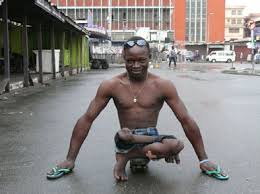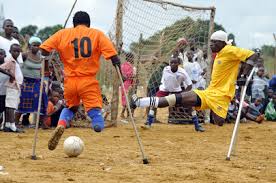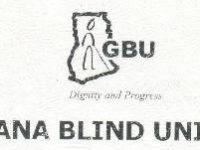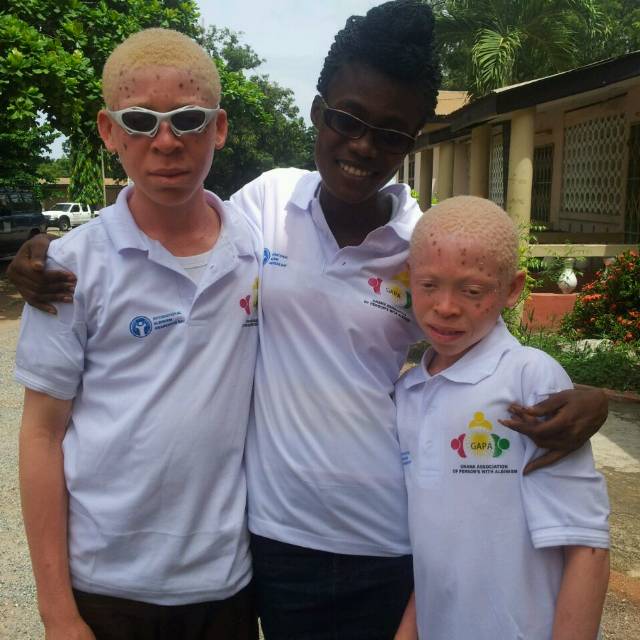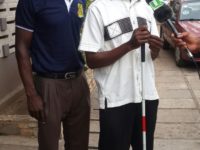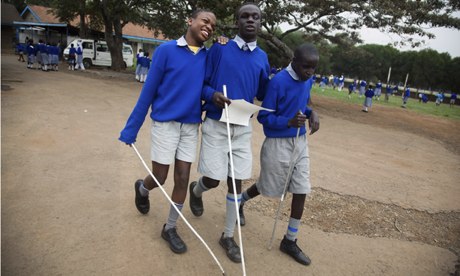
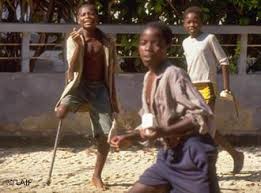 The population of persons with disability worldwide is very significant, constituting more than 10 percent of total country populations in some instances. In Ghana, the population of persons with disability stands at 10 percent, according to the 2010 Population and Housing Census. This figure is very significant, indicating that there are more than 2,000,000 persons living in Ghana with a disability. According to UN estimates, over 650million people worldwide have disabilities. 1 in 5 Americans have a disability. A combination of factors means that this figure keeps increasing gradually.
The population of persons with disability worldwide is very significant, constituting more than 10 percent of total country populations in some instances. In Ghana, the population of persons with disability stands at 10 percent, according to the 2010 Population and Housing Census. This figure is very significant, indicating that there are more than 2,000,000 persons living in Ghana with a disability. According to UN estimates, over 650million people worldwide have disabilities. 1 in 5 Americans have a disability. A combination of factors means that this figure keeps increasing gradually.
As churches grow and as new churches are planted, we will have more people with disabilities attending church. So what measures have the church put in place to accommodate people with disabilities?
A disability is defined as an impairment that limits a major life function such as seeing, hearing, walking, performing school work, carrying object or working at a job.
Some disabilities are a result of advancing age, accidents, while others are present at birth.
People with disability make up 20 percent of the population in every country, including Ghana which according to Human Rights Watch has five million people with disabilities. It has been described by a physically-challenged BBC Journalist, Sophie Morgan as the world’s worst place to be disabled.” Some are chained up at prayer camps, exiled from villages for being cursed, forced on the streets and in some cases even killed, this is the reality for many disabled people in Ghana”- Disabled journalist Sophie. Some physically-challenged people have no access to equipment, education, transport, healthcare or work. As a result, many live in abject poverty. The stigma attached to disabled people and their families has shocking consequences, including confinement and torture.
Disabilities require us to consider the frailty and dignity of human life. In ministering to people with disabilities, we are reminded of own vulnerability. Throughout history culture has been used to discriminate against persons with disability. For instance, in some cultures children born with disability are seen as spirits or demons sent to torment their parents. They are therefore either killed at birth or left to die in wild forests, supposedly to return to their spirit parents. In other cultures, children who are born with some disabilities are considered to be a curse on the community. So though they are not killed, they are denied all the love and care that they require to grow into responsible adults capable of contributing to the development of their communities.
Apart from cultural inhibitions the attitude of the state has also called to question its commitment to caring for the needs of the most vulnerable members of the society. Unfortunately until 2006 there was no clear legislature that protected the rights of persons with disability, though the 1992 Constitution had an anti-discrimination provision.
Interestingly, the provisions of the Disability Act have not been complied with. The educational, medical, psychological and cultural needs of this segment of the country’s population have still not been met, even though the Disability Act has clear provisions that impose some obligations on the state.
The increasing number of persons with all forms of disability on the streets of the country’s major streets is evident of the monumental failure of both the state and traditional societies to effectively deal with the needs of persons with disability. Increasingly poor parents who give birth to children with disability have been forced to abandon them on the streets. If this trend continues, the country risks creating a large corps of persons with disability whose talents and natural endowments go untapped.
In the midst of this gloom, there are some persons of disability who have risen above their disability and are contributing immensely to socio-economic development. It is however necessary to also recognize that there are equally thousands of other persons with disability who have been denied education, medical care, parental love and social acceptance. This group is usually at the bottom strata of society, barely managing to make a livelihood.
Yet people with disabilities remind us of the high value of human life and the unique contribution every person brings to bear for national and church development.
How pleasant and sweet it is to dance to music orchestrated by the blind organist, drummer or musician.
The guiding principle for addressing ethical issues related to disabilities must be our recognition of the sanctity of human life. The prenatal diagnosis of developmental disabilities such as ‘‘Down syndrome’’ makes the need for teaching within the church concerning the sanctity of human life critical.
